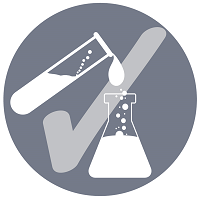Back
Formulation and Delivery – Chemical
Session: Symposium: Evolution in Patient-Centric Drug Formulation and Delivery (CE)
Scalable Production and Efficacy of Inhaled Antibiotic-Loaded Lipid Nanoparticles for Treatment of Pulmonary Infections
Wednesday, October 19, 2022
9:00 AM – 9:30 AM ET
Location: 205 AB

Vivek Gupta, PhD
Associate Professor, Pharmaceutical Sciences
St. John's University
Queens, New York
Speaker(s)
Cystic fibrosis (CF) is a complex inherited genetic disorder that primarily causes severe damage to the lungs, while affecting other organs such as digestive system as well. CF is caused by mutations in cystic fibrosis transmembrane conductance regulator (CFTR) gene, thus making it dysfunctional which results in production of thick mucus. One of the major complications associated with CF-associated thick mucus production and reduced mucus clearance, is patients’ excessive vulnerability for bacterial infections. In fact, most of the CF patients are on life-long antibiotic therapy, to either treat or prevent bacterial infections. Inhalation represents a very common and targeted route of administration for delivering antibiotics to the lower respiratory tract; and represents standard of care for chronic bacterial infections. One of the main inhaled antibiotics, aztreonam (AZT) is a synthetic monobactam antibiotic, and is routinely used as chronic maintenance therapy in patients with P. aeruginosa infections. Currently available as “Ready to reconstitute” lyophilized solution, it is administered by nebulization three times a day. Inhaled antibiotics are cornerstone maintenance therapy of bacterial infections in the lungs. However, inhaled antibiotic therapy, especially AZT is not cost-effective due to complexities involved in production and stability issues. Due to the high cost of therapy and lack of alternatives to AZT, it has become imperative to develop a formulation that can reduce the cost of therapy to patients and be easily scalable to commercial production. In this research work, we have adapted the use of Hot Melt Extrusion (HME) in tandem with probe sonication for the development of self-emulsifying Lipid-based Formulations (LBFs). The objective of this project is to optimize an AZT-loaded lipid formulation to produce an antimicrobial dosage form capable of delivering the AZT to lungs for CF patients.
Learning Objectives:
- Understand the landscape of inhaled antibiotics in treating Cystic fibrosis-associated bacterial infections
- Comprehend the importance of developing pharmaceutically scalable nanomedicine for improving the delivery and efficacy of inhaled antibiotics
- Understand the value of nanomedicine approaches in developing patient-centric dosage forms with better compliance

